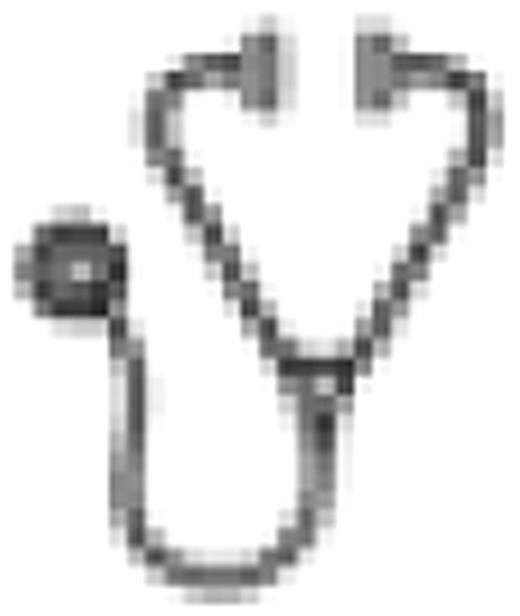Abstract
Abstract 489
Relapse remains the major cause of treatment failure after allogeneic hematopoietic transplantation for AML and MDS. Alloreactive NK cells mediate a potent antileukemic effect and may also enhance engraftment and reduce GVHD. We performed a phase I study infusing “third party” alloreactive NK cells from a haploidentical related donor as a component of the preparative regimen for allotransplantation from a separate HLA identical donor. The goal was to augment the antileukemia cytotoxicity of the preparative regimen by infusion of alloreactive NK cells and improve the overall outcome of hematopoietic transplantation.
Patients with advanced AML or high risk MDS in relapse or beyond first remission were eligible. They received the busulfan-fludarabine preparative regimen, followed by infusion of NK cells predicted to be alloreactive by KIR:KIR ligand incompatibility. The NK cell enriched product was produced from a steady state apheresis product by depleting CD3+ cells using the CliniMACS device (Miltenyi Corp). A second step positively selecting CD56+ cells was performed for the first dose level, but discontinued thereafter in order to increase the cell yield. The NK cell product was then cultured in complete media containing rIL-2 for 16 hours and infused intravenously following completion of the busulfan-fludarabine chemotherapy. After 5 days, ATG was administered followed by PBSC infusion from the HLA identical sibling or unrelated donor. Patients received tacrolimus and methotrexate for GVHD prophylaxis. Patients were treated in 4 dose levels of the NK cell enriched product; 1) 106 cells/kg, 2) 5 × 106/kg, 3) 3 × 107/kg, and 4) 3 × 107/kg followed by systemic interleukin-2 0.5 million units/m2 SQ daily for 5 days. CD3+ cells in the NK cell product were required to be <105/kg (median infused 1.1 x104/kg). Median CD56+ cells infused (x106/kg) were from 0.9 (level 1), 1.5 (level 2), and 4.9 (levels 3 and 4).
13 patients were entered. Median age was 51 years (range 2–60). 11 had active disease and 2 were in a second remission. Only mild infusion toxicity occurred with the NK cell infusion. Other toxicities were similar to that experienced with the preparative regimen without NK cells. The 2 patients at dose level 4 tolerated interleukin-2 systemic treatment without fever or increased toxicity. The haploidentical NK cells were transiently detected in the blood by chimerism studies in one patient. Rapid engraftment and hematologic recovery uniformly occurred from the HLA matched PBPC donor in all patients. None had graft failure. Grade 2 acute GVHD developed in 3 patients; all responded to corticosteroid treatment. None developed grade 3 or 4 acute GVHD. 9 of 11 patients with active disease achieved a complete remission. Only one patient died of nonrelapse mortality; she died in remission from infection 2 months post transplant.
This trial confirms the feasibility of producing the haploidentical NK cell product, and the lack of major toxicity attributable to the NK cell infusion in combination with an HLA compatible allogeneic transplantation. Infusion of haploidentical alloreactive NK cells was well tolerated and did not interfere with engraftment or increase the rate of GVHD after allogeneic hematopoietic transplantation. This approach merits further phase II and III study designed to reduce relapse and improve the outcome of allogeneic hematopoietic transplantation for AML/MDS.
| N . | NK cell doseCells/kg . | grade 2 GVHD . | Relapse . | NRM . | Alive in CR . |
|---|---|---|---|---|---|
| 4 | 106 | 1 | 4 | 0 | 0 |
| 4 | 5 × 106 | 0 | 3 | 0 | 1 (27+ m) |
| 3 | 3 × 107 | 2 | 1 | 1 | 1 (11+ m) |
| 2 | 3 × 107 + IL-2 | 0 | 0 | 0 | 2 (9+ m, 4+ m) |
| N . | NK cell doseCells/kg . | grade 2 GVHD . | Relapse . | NRM . | Alive in CR . |
|---|---|---|---|---|---|
| 4 | 106 | 1 | 4 | 0 | 0 |
| 4 | 5 × 106 | 0 | 3 | 0 | 1 (27+ m) |
| 3 | 3 × 107 | 2 | 1 | 1 | 1 (11+ m) |
| 2 | 3 × 107 + IL-2 | 0 | 0 | 0 | 2 (9+ m, 4+ m) |
No relevant conflicts of interest to declare.

This icon denotes an abstract that is clinically relevant.
Author notes
Asterisk with author names denotes non-ASH members.

This feature is available to Subscribers Only
Sign In or Create an Account Close Modal